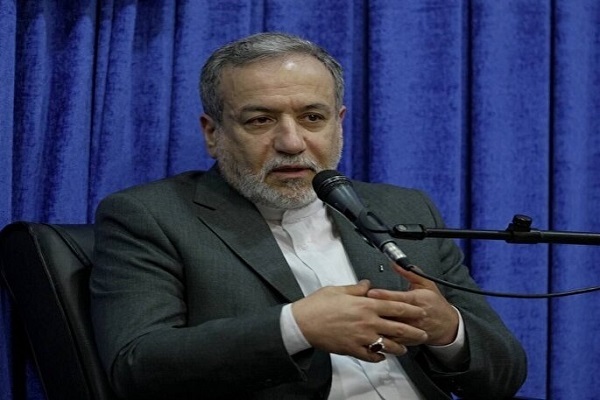‘Negation of Domination’ Basis of Iran’s Foreign Policy in Imam Khomeini’s Thought


Araqghchi made the remark during a ceremony held at the mausoleum of Imam Khomeini (RA) south of Tehran on Saturday morning in which the Foreign Ministry’s staff renewed allegiance to the ideals of the late founder of the Islamic Republic.
Emphasizing the key role of Imam Khomeini in the fight against foreigners’ domination, he said the Imam’s opposition to capitulation started the institution that defined and stabilized the principle of ‘negation of domination’ as the basis of the foreign policy of the Islamic Republic of Iran.
He noted that the policy of 'neither East, nor West', which means opposing the domination of Western and Eastern powers not opposing relations with them, arises from this principle.
Araghchi noted that in Iran’s Constitution, the second article states that the Islamic Republic is a system based on the negation of tyranny, oppression, imposing domination and accepting domination.
“This principle has been, and will be, the basis of our conduct,” he emphasized.
“We see ourselves as soldiers of the late Imam Khomeini and the Leader of the Islamic Revolution, and we hope to be worthy soldiers,” he went on to say.
The visit to the mausoleum came ahead of the 36th anniversary of Imam Khomeini’s demise.
Read More:
Every year on the occasion, a commemoration ceremony is held at Imam Khomeini’s mausoleum in southern Tehran, with large crowds of mourners attending. Leader of the Islamic Revolution Ayatollah Seyed Ali Khamenei traditionally addresses the annual event.
Ayatollah Ruhollah Moussavi Khomeini, better known as Imam Khomeini, engineered Iran’s 1979 Islamic Revolution, which led to the overthrow of the US-backed Shah of Iran.
Born in 1902, he grew to become the iconic leader of the Iranian nation’s struggle in the 1970s against the centuries-old monarchical tyranny.
Imam Khomeini passed away on June 3, 1989, at the age of 87.
4285558



